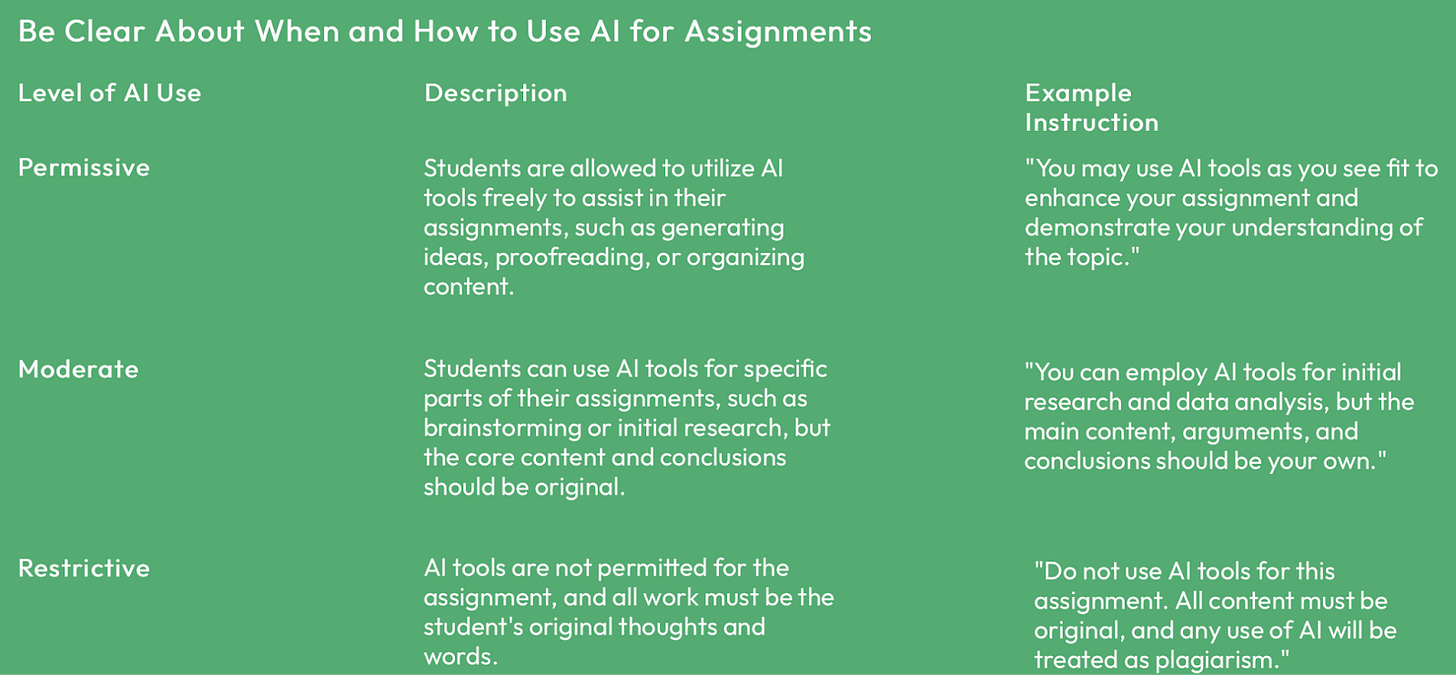Hi WOL Friends,
We had to take a hiatus last week - between traveling to the awesome Digital Learning Annual Conference (DLAC) and coming home to a sick dog - I just couldn’t muster the needed energy to accomplish everything on my list. I am sure you all have been there!
As you are listening in this week - I wanted to acknowledge that our sweet Babe has crossed that bridge. She gave us a lot of beautiful memories. (And she was rarely without Tootsie - many of you have seen them in the background in my Zoom meetings.)
It was fun to get back into recording - and talk with Erin Siverd and Melissa Henderson about the work they are doing to support our Learning Facilitators as they explore where, how, and why Artificial Intelligence (AI) is being used or has value in our work as educators. They acknowledge the widespread presence of AI in various spheres and have varying attitudes towards it, ranging from fear to excitement.
Students are already using AI, not really to cheat. In many cases students that have used AI are using it as a tool for better understanding of concepts being taught. This means in order to reduce AI use as a potential cheating apparatus we should teach them to think critically about how and why they use AI and make sure that supports are in place for those students struggling to understand or engage with the material. WOL Science Teacher
In addition to the many ways we use AI in our email, spell-checking, search, and so much more, we want to look beyond the mentality of ‘cheating’ and capture this moment for learning how to empower and enhance both the learning facilitator and students' experiences.
Here are some of the key points we talked about:
Using AI requires humans to be great prompt makers. The tools are only as good as the prompts we create - which will drive the responses.
Look at the variety of tools that are out there through the lens of purpose. Why am I using this AI (or any) tool in this instructional or assessment mode?
Consider the ethical issues surrounding AI, including bias, the trustworthiness of the data, and the need for discerning usage.
Understand and advocate for maintaining human agency and ethical awareness in AI integration. Be sure to emphasize the role of educators in shaping students' understanding and usage of AI.
Our conversation underscores the importance of proactive engagement with AI in education, emphasizing collaboration, ethical awareness, and purposeful integration to enhance learning outcomes while preserving human values and connections.
AI is not going away so we need to teach students how to use this powerful tool responsibly. (WOL Elementary Facilitator)
We are so lucky to have leaders like Melissa and Erin leading our teachers as we work to continually look at our practices and work to continuously improve how we deliver both instruction and content to learners.
Here are a few of the resources Melissa and Erin have shared:
Peninsula SD: Principles and Beliefs
All Trends AI 15,000 ChatGPT prompts.xlsx
Artificial Intelligence and the Future of Teaching and Learning
As always, if you are considering expanding options for your students in the coming year - please reach out. We are glad to talk about options - whether it is for a small group or a whole class, a school year or a short-term subbing option.
You can find our catalog HERE - and feel free to reach out to me at pmulroy@worldoflearninginstitute.com
Have a great week,
Pat
















